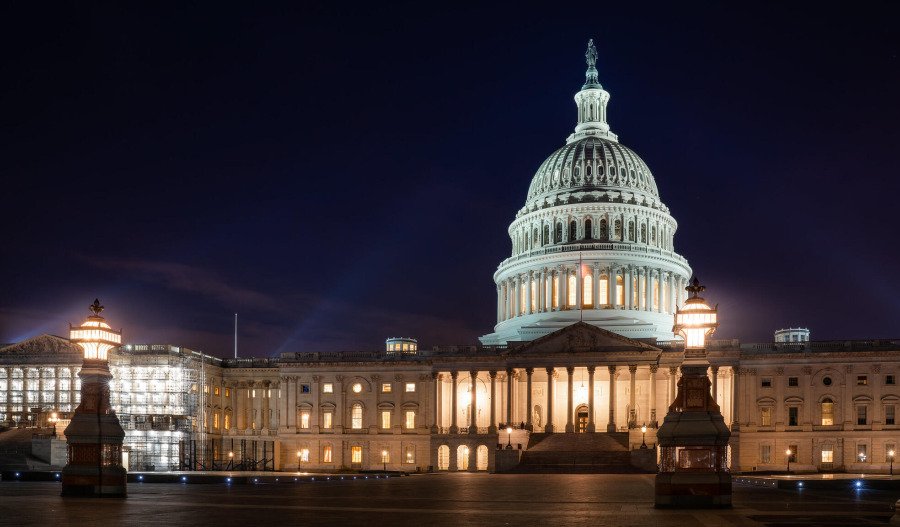The prospect of industry-friendly bills that are expected to provide cryptocurrencies with the regulatory framework United States crypto insiders have dreamed of has pushed Bitcoin past US$120,000 for the first time ever.
Underscoring what has been described as “Crypto Week” in the U.S., were overtures by President Donald Trump for policymakers to overhaul their rules, with crypto companies repeatedly accusing U.S. financial regulators (like the SEC) of enacting confusing or conflicting rules.
During former President Joe Biden’s administration (2021-2025) there were a litany of legal actions brought against crypto firms by the Securities and Exchange Commission (SEC).
Bitcoin is up 29% so far this year to a record high of US$122,055 on the back of the Trump administration and US regulator support.
The Guiding and Establishing National Innovation for US Stablecoins (GENIUS) Act, which has already passed the Senate, sets a legal framework for using stablecoins legally for payments in the US.
However, the prospect of further tailwinds for crypto has also ignited a broader rally across other cryptocurrencies, with Ether, the world’s second-most popular token, reaching a five-month high of US$3,048.2 on Monday.
As a form of monetary exchange that lets people sidestep central banks and traditional payment methods, the total market value of the cryptocurrency sector is estimated by CoinMarketCap to have risen to around US$3.8 trillion.
This week U.S. lawmakers will discuss three key pieces of legislation which if successful could make it easier for companies to launch new digital asset products and to trade in crypto:
- The GENIUS Act: Aims to clarify when digital assets like crypto tokens are considered securities or commodities, helping startups avoid legal uncertainty by providing clear regulatory rules.
- The Clarity Act: Would block federal agencies from using court rulings to overextend regulatory power, ensuring that Congress – and not the courts – defines how crypto assets are classified and governed.
- The Anti-CBDC Surveillance State Act: Would prevent the Federal Reserve from issuing a central bank digital currency (CBDC), arguing it could enable government surveillance of Americans’ financial activity and threaten individual privacy.
“We expect capital that was previously sidelined due to regulatory uncertainty to re-enter … even if final passage stalls,” Jag Kooner, head of derivatives at Bitfinex crypto exchange, told the media.
Meanwhile, the Democrats argue that the Trump administration is conceding too much ground to the crypto industry and are expected to offer amendments to the GENIUS and Clarity Acts.
“I’m concerned that what my Republican colleagues are aiming for is another industry handout,” Democratic Senator Elizabeth Warren said.
She urged Congress to bar public officials, including Trump, from issuing, backing or profiting from crypto tokens.
A one-time crypto sceptic, Trump’s family business has launched several cryptocurrency meme coins, flash-in-the-pan assets inspired by internet jokes or cultural references, such as $Trump and $Melania.
Trump became the first major-party presidential candidate to accept campaign donations via crypto during his presidential campaign last year.
According to Federal Election Commission data, crypto insiders spent nearly a quarter of a billion dollars during the 2024 campaign supporting crypto allies and weeding out antagonists.
Back in March Trump said he would create a crypto reserve that would include five cryptocurrencies (including Bitcoin), adding he would make the U.S. “the crypto capital of the world”.
Since Donald Trump’s re-election in November 2024, Bitcoin has surged by 75%, rising from about $69,539 at close on Election Day to its current record level.
It rallied above $100,000 for the first time last December.



